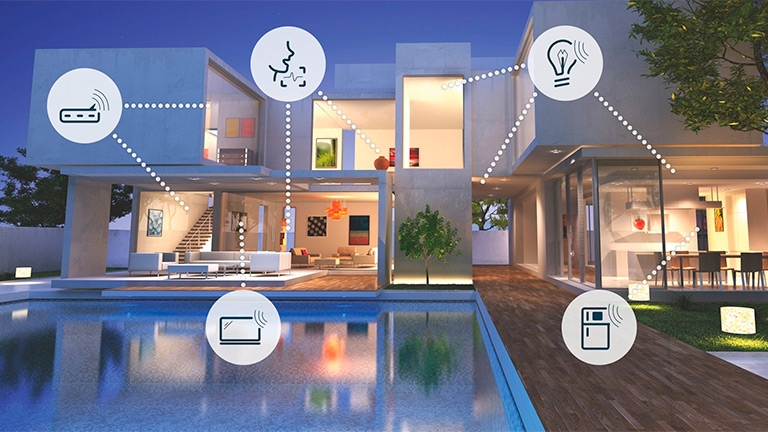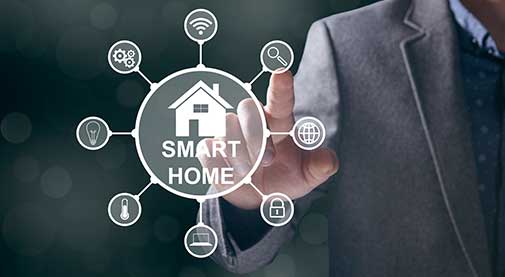In an era where technology seamlessly integrates into our daily lives, understanding how AI learns user behavior at home becomes crucial for homeowners and businesses alike. As smart home devices proliferate, they promise convenience, efficiency, and personalization, but they also raise questions about privacy and data usage. By delving into the mechanics behind AI's ability to learn from user behavior, we can better appreciate the balance between innovation and security.

The Rise of Smart Homes
Smart homes have evolved from a futuristic concept to a tangible reality. Devices such as smart thermostats, lighting systems, and security cameras are now commonplace in households around the world. These devices are designed to make life easier by automating routine tasks and responding to the needs of their users. But how do they achieve this level of intelligence and adaptability?
Understanding AI's Learning Process
At the heart of smart home technology is artificial intelligence, which uses complex algorithms to analyze data and make informed decisions. The process begins with data collection, where devices gather information about user preferences, habits, and routines. This data is then processed and analyzed to identify patterns and trends. Over time, the AI system becomes increasingly adept at predicting user behavior and adjusting its responses accordingly.
Data Collection: The First Step
Data collection is the foundation of AI learning. Smart home devices are equipped with sensors and cameras that monitor various aspects of the home environment. These sensors collect data on factors such as temperature, lighting, and motion. For instance, a smart thermostat might track when you typically adjust the temperature or when rooms are most often occupied. This information is crucial for creating a personalized and efficient home environment.
Pattern Recognition and Analysis
Once data is collected, the AI system employs pattern recognition techniques to analyze the information. By identifying recurring trends, the system can predict user behavior and adjust its actions accordingly. For example, if the AI recognizes that you turn on the living room lights at sunset every day, it can automate this action, enhancing convenience and energy efficiency.
Privacy Concerns and Security Measures
While the benefits of AI in smart homes are undeniable, they come with privacy concerns. Users are understandably wary of how their data is collected, stored, and used. To address these concerns, companies are implementing robust security measures to protect user data. Encryption, anonymization, and regular security updates are just a few ways that data privacy is being safeguarded.
For more insights into how AI is revolutionizing home living, visit this article on AI and privacy in smart homes.
Practical Applications of AI at Home
The practical applications of AI in smart homes are vast and varied. From automated lighting systems that adjust based on time of day and occupancy to smart speakers that learn your music preferences, the possibilities are endless.
Discover more about how AI enhances home environments by visiting this smart lighting guide.
AI in Home Security
One of the most significant applications of AI at home is in security. AI-powered security systems can identify unusual activity, recognize faces, and even alert homeowners to potential threats. These systems learn from daily interactions, becoming more accurate and reliable over time.
For homeowners looking to install a comprehensive smart home system, check out this smart home installation guide.
Energy Efficiency and Climate Control
AI's ability to optimize energy usage is another crucial aspect of its application in smart homes. By learning user schedules and preferences, AI systems can adjust heating, cooling, and lighting to minimize energy consumption without compromising comfort.
Explore further how AI contributes to climate control in homes by visiting this home climate control article.
Future of AI in Smart Homes
As technology continues to advance, the future of AI in smart homes looks promising. With ongoing developments in machine learning and data analytics, we can expect even greater levels of personalization and efficiency. However, it is essential to maintain a balance between innovation and privacy to ensure that these advancements benefit users without compromising their trust.
For a comprehensive checklist on setting up a smart home, refer to this smart home checklist.

FAQ
How does AI personalize my smart home experience?
AI personalizes your smart home by learning your habits and preferences. It uses data collected from various devices to automate tasks and create a customized environment tailored to your needs.
Is my data safe with smart home devices?
Most smart home providers implement robust security measures to protect your data. These include encryption, anonymization, and regular updates to safeguard against unauthorized access.
What are the energy-saving benefits of AI in smart homes?
AI optimizes energy usage by adjusting heating, cooling, and lighting based on your schedule and preferences, reducing unnecessary energy consumption and lowering utility bills.

